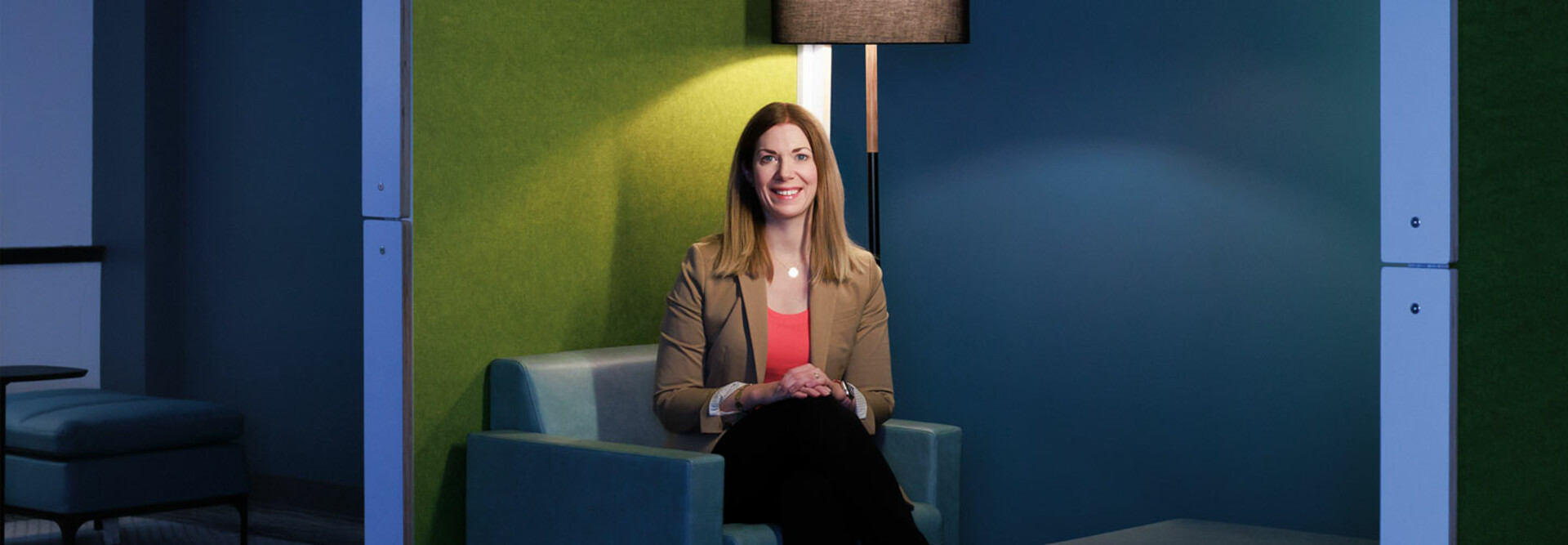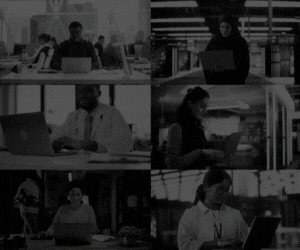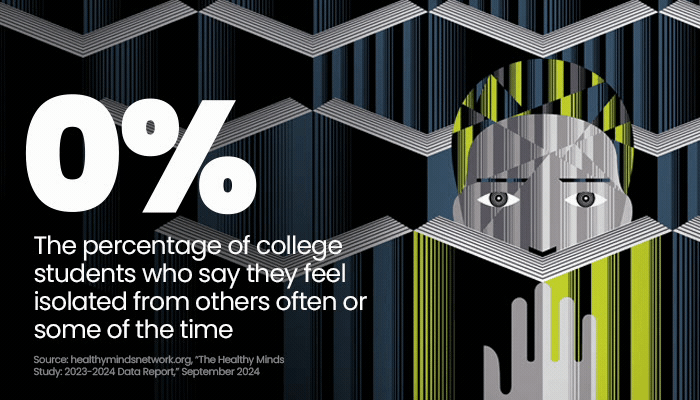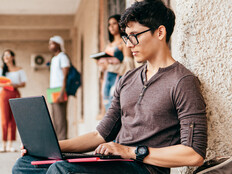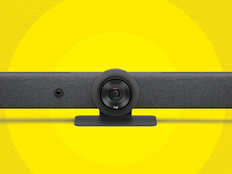In a separate room with comfortable chairs and cushions hanging on the wall that students can remove to sit on, an 86-inch InFocus touch enabled display, a wide-angle camera and ceiling-mounted microphone is available for teleconferencing.
“We have a peer support program. Students who run that can use Zoom and either talk to somebody sitting in their home or at the Blue Bell campus, which is 50 minutes away by car,” Kang says. That setup saves remote students or those on other campuses from having to come to Pottstown to do an in-person session.
Students’ reaction to the MCCC Wellness Center resources has been notable, Kang says.
“They're just in awe of the space,” she says. “They come there and feel really comfortable. This semester it’s been used a lot — it’s always busy.”
A Multidisciplinary Approach Can Produce a Nuanced Tech Offering
In January 2021, the University of Alabama at Birmingham introduced a bespoke health and wellness app — a collective effort by students, the university’s IT division, the student affairs department and student counseling services, according to Angela Stowe, director of student counseling services.
“Students had come forward asking for an app that gave them 24/7 access to peer-to-peer support,” Stowe says. “But the more we talked about it, we realized they were actually looking for a mental health hub on campus where they could just go to one place and connect with all kinds of resources.”
DISCOVER: San Diego State University’s esports lab supports students’ mental wellness.
Following focus group discussions, the app development effort gained momentum with the onset of the COVID-19 pandemic. Today, students can use it to create a customizable self-care plan that involves elements, such as nutrition and stress management, based on preset or personalized prompts. They can also check off items they complete each day and record their wellness goals and progress in a daily journal.
Through the UABwell app, students can access information about available mental health services and be connected to emergency service responders. They can also view upcoming mental health-related campus events on a live calendar feed and watch UAB-produced videos on topics such as yoga and mindfulness.
Data privacy and security were a central consideration when developing the app, says Stowe. The team was aware students might be concerned about who’d be able to see information about them.
“We designed our app so that people do not have to sign into it,” she says. “We have no idea who downloads the app. The only activity we can view involves our videos because they are directly linked to a YouTube playlist, so we can see how many plays they’ve had.”
A committee meets roughly three times a year to decide on app updates — some of which are based on feedback from a survey distributed to students through the school’s learning management system.
“We'll do beta versions, test drive those and give feedback,” Stowe says. “The IT team will work out glitches and then release an update when we're ready. We've been able to do that a couple of times a year, just to freshen it up.”



